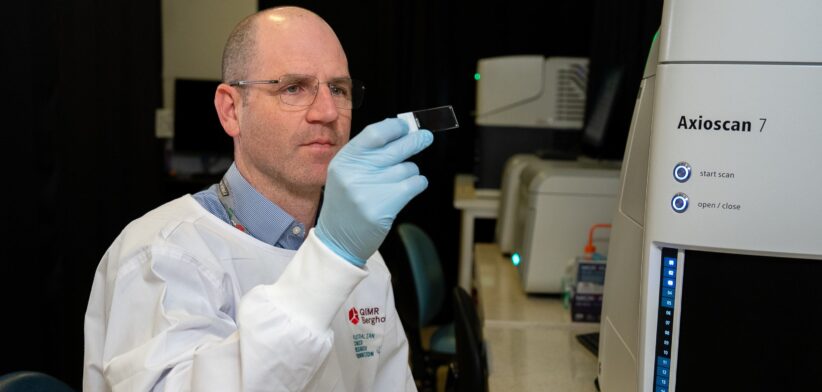Patients with aggressive and late-stage cancers will benefit from a new world-class research centre which opened in Brisbane this week.
Based at QIMR Berghofer, in the inner-city suburb of Herston, the Australian Cancer Research Foundation’s Optimised Cancer Therapy (ACRF-COCT) Centre allows for treatment options to be assessed in real-time.
QIMR Berghofer Professor Vicki Whitehall will be one of the researchers using the Centre’s new cutting-edge technology, including an “organoid suite” which had rapidly accelerated the number of experiments her team can run in a much shorter timeframe.
Professor Whitehall said her research was focused on colorectal cancer, the second deadliest cancer in Australia, which was often diagnosed at an advanced stage, when there was little chance of a cure.
She said her team was developing ways to predict a patient’s response to different drugs to deliver personalised medicine, better ensuring a patient received the right drug at the right time.
“For patients with advanced colorectal cancer, there may not be a lot of time to trial different drugs and see which they are most likely to respond to.”
Professor Whitehall said by using the organoid suite, they could prioritise the best drug for the patient to increase their chance of survival, whilst limiting the use and toxicity of drugs less likely to be effective.
“We couldn’t manually do by hand what our new robot is able to do. Drugs are expensive so being able to reduce the volumes being used in experiments is a significant cost saving. The system is also automated, saving time and money, and allowing us to concentrate on our discovery-based research.”
QIMR Berghofer leukaemia researcher and Royal Brisbane and Women’s Hospital haematologist Professor Steven Lane will be among those leading the overall focus of the Centre, which he said, integrated the latest advances in genomics and technology to understand how cancerous tumours responded to treatment.
Professor Lane said ACRF-COCT brought together a team of leading academic and clinical investigators from QIMR Berghofer, the Royal Brisbane and Women’s Hospital, and the Princess Alexandra Hospital.
“ACRF-COCT will accelerate our research towards a future of precision medicine that delivers treatments tailored to individual patient need,” he said.
“ACRF-COCT will use novel research tools to determine how different treatments can be combined and delivered in real-time, significantly improving patient outcomes.
“We’re now able to examine patient samples, at the time of surgery, during treatment, and at the completion of treatment to provide a comprehensive view of how different cancers respond to standard chemotherapy; immunotherapy; targeted therapies; and cellular therapies.”








